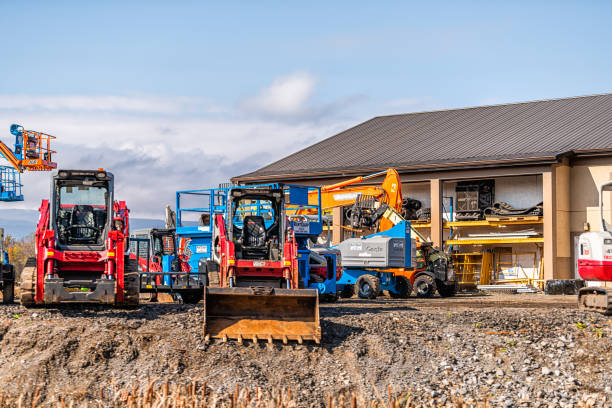In the ever-evolving landscape of construction and infrastructure development, the need for heavy equipment is undeniable. For many project managers and contractors, the decision to rent heavy machinery instead of investing in ownership has become a strategic move. This article explores the benefits and considerations associated with heavy equipment rental, shedding light on how this approach can enhance project efficiency, reduce costs, and provide a competitive edge in the industry.
- Financial Flexibility:
The upfront cost of purchasing heavy equipment can be a significant barrier for many businesses. Heavy equipment rental offers a practical solution by providing access to a wide range of machinery without the need for a substantial capital investment. This financial flexibility allows companies to allocate resources strategically, ensuring that funds are available for other critical aspects of the project.
- Tailored Solutions for Each Project:
Every construction project is unique, with varying requirements for different types of heavy machinery at different stages. Heavy equipment rental companies offer a diverse fleet, allowing project managers to select equipment tailored to the specific needs of each phase. This adaptability ensures that projects are equipped with the right tools, promoting efficiency and precision in execution.
- Mitigating Maintenance Hassles:
Owning heavy equipment comes with the responsibility of maintenance, repairs, and regular inspections. Opting for rental shifts these burdens to the rental company, saving businesses valuable time and resources. With a well-maintained fleet provided by the rental service, project teams can focus on their core competencies, knowing that equipment reliability is taken care of.
- Staying Technologically Relevant:
In an industry where technological advancements can significantly impact efficiency and safety, heavy equipment rental ensures access to the latest innovations without the risk of obsolescence. Rental companies regularly update their fleets, allowing projects to benefit from cutting-edge technology without the financial commitment of purchasing and upgrading equipment.
- Scalability and Project Optimization:
Construction projects often face fluctuations in workload, requiring different levels of equipment at different times. Heavy equipment rental provides the scalability needed to match project demands. This adaptability not only optimizes resources but also prevents unnecessary expenses during periods of reduced activity, enhancing overall project efficiency.
- Reducing Storage and Transport Headaches:
Owning a fleet of heavy equipment entails challenges related to storage and transportation logistics. Renting equipment eliminates the need for extensive storage spaces and the complexities associated with moving heavy machinery. This not only reduces costs but also streamlines project planning, allowing for greater focus on execution and meeting project timelines.
Conclusion:
Embracing heavy equipment rental is more than just a practical choice; it’s a strategic move that empowers businesses to navigate the challenges of construction projects with agility and efficiency. From financial flexibility to technological relevance and scalability, the advantages of renting heavy equipment contribute to streamlined operations, reduced costs, and improved project outcomes. As the industry continues to evolve, heavy equipment rental stands out as a smart approach, empowering construction professionals to achieve success in an ever-demanding market.

